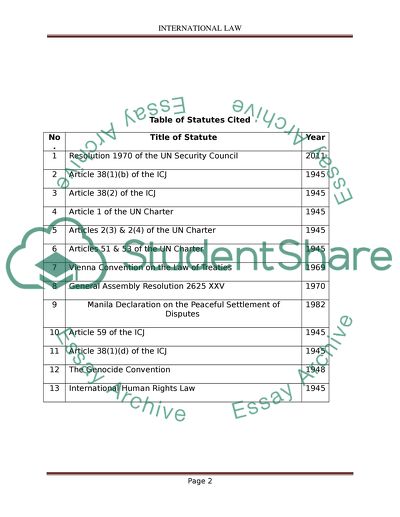Cite this document
(“In relation to customary international law, what are the difficulties Essay”, n.d.)
Retrieved from https://studentshare.org/law/1394228-in-relation-to-customary-international-law-what-are-the-difficulties-involved-in-determining-state-practice-and-how-is-it-possible-to-separate-state-practice-from-opinio-juris
Retrieved from https://studentshare.org/law/1394228-in-relation-to-customary-international-law-what-are-the-difficulties-involved-in-determining-state-practice-and-how-is-it-possible-to-separate-state-practice-from-opinio-juris
(In Relation to Customary International Law, What Are the Difficulties Essay)
https://studentshare.org/law/1394228-in-relation-to-customary-international-law-what-are-the-difficulties-involved-in-determining-state-practice-and-how-is-it-possible-to-separate-state-practice-from-opinio-juris.
https://studentshare.org/law/1394228-in-relation-to-customary-international-law-what-are-the-difficulties-involved-in-determining-state-practice-and-how-is-it-possible-to-separate-state-practice-from-opinio-juris.
“In Relation to Customary International Law, What Are the Difficulties Essay”, n.d. https://studentshare.org/law/1394228-in-relation-to-customary-international-law-what-are-the-difficulties-involved-in-determining-state-practice-and-how-is-it-possible-to-separate-state-practice-from-opinio-juris.


